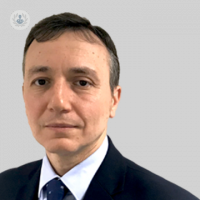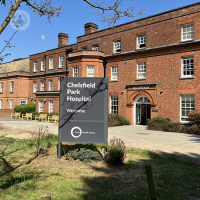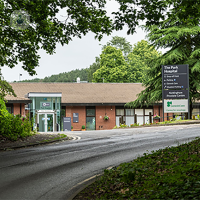What is the parathyroid gland?
There are four parathyroid glands in the neck, usually attached to the thyroid gland. They control the calcium levels in the blood, which is important for a wide array of functions throughout the body. The most common problem with parathyroid glands is an overactive gland due to a benign tumour called primary hyperparathyroidism. In 90%+ of cases, only one gland is involved.
The surgery of the parathyroid glands involves locating the diseased parathyroid gland, either with imaging before surgery or by a neck exploration at surgery. If the abnormal gland(s) are found on imaging prior to surgery, then a minimalist targeted approach to removing the abnormal gland can be undertaken. If they cannot be found or disease is due to multi-gland disease, then a bilateral neck exploration is undertaken and the abnormal glands removed.

What are the main functions of the parathyroid gland?
The parathyroid glands control the level of calcium in the bloodstream, bones and rest of the body. They do this by producing a hormone called PTH (Parathyroid Hormone). Calcium is needed in the body for the following:
- To provide energy for the nervous system
- To give energy to our muscles
- To strengthen our bones
If calcium levels are too low, the parathyroid glands will release more PTH, and if there is enough calcium in the body, they will temporarily stop releasing PTH. If the parathyroid glands are diseased, then this leads to certain problems.
Complications with the parathyroid gland
There are three main problems that can develop in the parathyroid glands: hyperparathyroidism, hypoparathyroidism and cancer.
- Hyperparathyroidism: when calcium levels in the blood are too high as a result of the parathyroid glands overproducing PTH. The symptoms are varied, including osteoporosis, kidney stones, excessive urination, abdominal pain, tiredness or weakness, depression or lack of memory, pain in the bones and joints, nausea, vomiting and loss of appetite.
- Hypoparathyroidism: when calcium levels are too high in the bloodstream, as a result of too little PTH being produced. Low calcium levels lead to an excess of phosphorus in the blood. Symptoms can include numbness around the mouth, hands or feet, spasms, anxiety or depression, fatigue, and rough or brittle hair.
- Cancer: cancerous growths on the parathyroid glands can cause symptoms such as muscle weakness, difficulty swallowing and a lump in the neck. Parathyroid gland cancer can also result in hypercalcaemia, which can cause people to feel thirsty often, excessive urination, tiredness, indigestion, loss of appetite, constipation and muscle weakness.
Are there any treatments for parathyroid gland problems?
- Hyperparathyroidism: treatment for this includes a ‘watch and wait’ approach, medications to reduce calcium levels, and to combat osteoporosis, as well as surgery to remove the diseases glands. Lifestyle changes can also help, such as diet changes, exercising regularly, drinking enough fluids and stopping smoking.
- Hypoparathyroidism: the objective is to restore the balance of calcium and phosphorus in the body. It can be treated with calcium carbonate and vitamin D supplements, in addition to PTH injections if the specialist deems it appropriate.
- Cancer: the most effective treatments are surgery, radiotherapy and chemotherapy for parathyroid gland cancer.
What specialist treats parathyroid gland problems?
The specialists who treat parathyroid gland problems are endocrinologists, surgeons, endocrine surgeons, and ENT surgeons.
10-28-2015 05-23-2023Parathyroid gland
Professor Barbara McGowan - Endocrinology, diabetes & metabolism
Created on: 10-28-2015
Updated on: 05-23-2023
Edited by: Conor Dunworth
What is the parathyroid gland?
There are four parathyroid glands in the neck, usually attached to the thyroid gland. They control the calcium levels in the blood, which is important for a wide array of functions throughout the body. The most common problem with parathyroid glands is an overactive gland due to a benign tumour called primary hyperparathyroidism. In 90%+ of cases, only one gland is involved.
The surgery of the parathyroid glands involves locating the diseased parathyroid gland, either with imaging before surgery or by a neck exploration at surgery. If the abnormal gland(s) are found on imaging prior to surgery, then a minimalist targeted approach to removing the abnormal gland can be undertaken. If they cannot be found or disease is due to multi-gland disease, then a bilateral neck exploration is undertaken and the abnormal glands removed.

What are the main functions of the parathyroid gland?
The parathyroid glands control the level of calcium in the bloodstream, bones and rest of the body. They do this by producing a hormone called PTH (Parathyroid Hormone). Calcium is needed in the body for the following:
- To provide energy for the nervous system
- To give energy to our muscles
- To strengthen our bones
If calcium levels are too low, the parathyroid glands will release more PTH, and if there is enough calcium in the body, they will temporarily stop releasing PTH. If the parathyroid glands are diseased, then this leads to certain problems.
Complications with the parathyroid gland
There are three main problems that can develop in the parathyroid glands: hyperparathyroidism, hypoparathyroidism and cancer.
- Hyperparathyroidism: when calcium levels in the blood are too high as a result of the parathyroid glands overproducing PTH. The symptoms are varied, including osteoporosis, kidney stones, excessive urination, abdominal pain, tiredness or weakness, depression or lack of memory, pain in the bones and joints, nausea, vomiting and loss of appetite.
- Hypoparathyroidism: when calcium levels are too high in the bloodstream, as a result of too little PTH being produced. Low calcium levels lead to an excess of phosphorus in the blood. Symptoms can include numbness around the mouth, hands or feet, spasms, anxiety or depression, fatigue, and rough or brittle hair.
- Cancer: cancerous growths on the parathyroid glands can cause symptoms such as muscle weakness, difficulty swallowing and a lump in the neck. Parathyroid gland cancer can also result in hypercalcaemia, which can cause people to feel thirsty often, excessive urination, tiredness, indigestion, loss of appetite, constipation and muscle weakness.
Are there any treatments for parathyroid gland problems?
- Hyperparathyroidism: treatment for this includes a ‘watch and wait’ approach, medications to reduce calcium levels, and to combat osteoporosis, as well as surgery to remove the diseases glands. Lifestyle changes can also help, such as diet changes, exercising regularly, drinking enough fluids and stopping smoking.
- Hypoparathyroidism: the objective is to restore the balance of calcium and phosphorus in the body. It can be treated with calcium carbonate and vitamin D supplements, in addition to PTH injections if the specialist deems it appropriate.
- Cancer: the most effective treatments are surgery, radiotherapy and chemotherapy for parathyroid gland cancer.
What specialist treats parathyroid gland problems?
The specialists who treat parathyroid gland problems are endocrinologists, surgeons, endocrine surgeons, and ENT surgeons.


Minimally invasive parathyroidectomy: A modern approach to parathyroid surgery
By Mr Tarek Abdel-Aziz
2024-12-26
Here, in one of our latest medical articles at Top Doctors UK, minimally invasive parathyroidectomy is discussed thoroughly by highly regarded consultant thyroid and endocrine surgeon, Mr Tarek Abdel-Aziz. See more


The benefits of parathyroid surgery
By Mr Ijaz Ahmad
2024-12-25
Parathyroid surgery is a medical procedure performed to address issues related to the parathyroid glands. They play a crucial role in regulating calcium levels in the body. When the parathyroid glands become overactive or develop abnormalities, it can lead to a condition called hyperparathyroidism. Leading consultant ENT surgeon Mr Ijaz Ahmad explores the benefits of parathyroid surgery and its significance in addressing parathyroid problems. See more


Ask an expert: What is the role of the parathyroid glands?
By Mr Ioannis Christakis
2024-12-22
Highly respected consultant endocrine surgeon Mr Ioannis Christakis shares his insight and expertise on parathyroid glands and their role in controlling the body’s calcium levels in this detailed article. See more


What do my parathyroid glands do?
By Mr Radu Mihai
2024-12-11
We spoke to a leading consultant endocrine surgeon, Mr Radu Mihai, to learn about parathyroid disease, how the parathyroids are affected and what their function usually would be. We found out about the many symptoms of parathyroid disease ranging from abdominal discomfort, tiredness, lack of concentration and more. See more
Experts in Parathyroid gland
-
Dr Jeannie Todd
Endocrinology, diabetes & metabolismExpert in:
- Adrenal gland disorders
- Parathyroid gland
- Diabetes
- Thyroid disorders
- Polycystic ovary syndrome (PCOS)
- Diseases of the pituitary and hypothalamus
-
Dr Dipesh Patel
Endocrinology, diabetes & metabolismExpert in:
- Diabetes
- Thyroid disorders
- Cardiovascular Medicine
- Parathyroid gland
- Polycystic ovary syndrome (PCOS)
- Adrenal gland disorders
-
Mr James Smellie
Endocrinology, diabetes & metabolismExpert in:
- Thyroid
- Parathyroid gland
- Adrenal gland disorders
-
Dr Felicity Kaplan
Endocrinology, diabetes & metabolismExpert in:
- Diabetes
- Thyroid disorders
- Parathyroid gland
- Osteoporosis
- Polycystic ovary syndrome (PCOS)
-
Dr Samer Al-Sabbagh
Endocrinology, diabetes & metabolismExpert in:
- Thyroid disorders
- Adrenal gland disorders
- Parathyroid gland
- Diabetes
- Hypogonadism
- Pituitary tumours
- See all

Chelsfield Park Hospital - part of Circle Health Group
Chelsfield Park Hospital - part of Circle Health Group
Bucks Cross Rd, Chelsfield, Orpington BR6 7RG
No existe teléfono en el centro.
By using the telephone number provided by TOP DOCTORS, you automatically agree to let us use your phone number for statistical and commercial purposes. For further information, read our Privacy Policy
Top Doctors

The Park Hospital - part of Circle Health Group
The Park Hospital - part of Circle Health Group
Sherwood Lodge Drive, Burntstump Country Park, Arnold, Nottinghamshire NG5 8RX
No existe teléfono en el centro.
By using the telephone number provided by TOP DOCTORS, you automatically agree to let us use your phone number for statistical and commercial purposes. For further information, read our Privacy Policy
Top Doctors

Bath Clinic - part of Circle Health Group
Bath Clinic - part of Circle Health Group
Claverton Down Road, Combe Down, Bath BA2 7BR
No existe teléfono en el centro.
By using the telephone number provided by TOP DOCTORS, you automatically agree to let us use your phone number for statistical and commercial purposes. For further information, read our Privacy Policy
Top Doctors
-
Chelsfield Park Hospital - part of Circle Health Group
Bucks Cross Rd, Chelsfield, Orpington BR6 7RG, OrpingtonExpert in:
- Vascular Surgery
- Cardiology
- Colorectal surgery
- General Surgery
- Maxillofacial Surgery
- Orthopaedic surgery
-
The Park Hospital - part of Circle Health Group
Sherwood Lodge Drive, Burntstump Country Park, Arnold, Nottinghamshire NG5 8RX, ArnoldExpert in:
- General Surgery
- Maxillofacial Surgery
- Oral surgery
- Plastic surgery, reconstructive and aesthetics
- Obstetrics and Gynaecology
- Podiatry
-
Bath Clinic - part of Circle Health Group
Claverton Down Road, Combe Down, Bath BA2 7BR, BathExpert in:
- Clinical analysis
- Cancer
- Breast Cancer
- Prostate Cancer
- Cardiology
- Cataracts
- See all
- Most viewed diseases, medical tests, and treatments
- Snoring
- Polysomnography (sleep study)
- Chronic headache
- Nystagmus
- Facial feminisation surgery
- Hormone therapy
- Migraine
- Autoimmune diseases
- Weight loss injections
- Nipple discharge








